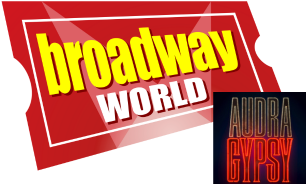IAP Presents BRANDYWINE DISTILLARY FIRE, 9/9-18
Brandywine Distillery Fire began as an attempt to destroy storytelling or an attempt to tell story in the way that Jackson Pollack paints landscapes. Playmakers Michael Gardner and Matthew Freeman (creators of When is A Clock and Notes from Underground) conjectured that to develop a theater work in the "wrongest" way possible might be a liberating experience for artists and audiences alike. They proceeded with a series of workshops. In the workshops, they led a process of improvising a play from scratch. And failing. Deliberately. And writing it down. And failing further.
What resulted are texts that promise narrative, performances that promise elegance, sets and costumes that promise classicism and a production that never delivers on its promises.
One of the byproducts of the play's development is a performance style which mimics the play's stuttering, smiling "failures". Prominent words in a sentence are mis-stressed while adjoining and supplementary words are given weight. The effect is a delivery that recalibrates an audience's ear and forces the spectator to hear language anew. The cast includes TV Star Steve Burns from the hit show Blue's Clues. See a video clip of the show here.
Michael Gardner, Co-Founder and Co-Artistic Director of The Brick Theater has been directing and producing plays and theater festivals in New York since 1996. He frequents in subverted visions of literary classics such as As I Lay Dying, Notes from Underground, Memoirs of My Nervous Illness, King Lear, Vaclav Havel's Mountain Hotel, Jason Craig's The Baby Jesus Conversation, The Kung Fu Importance of Being Earnest and The Ninja Cherry Orchard.
Matthew Freeman is a Brooklyn-based playwright whose plays include The Death of King Arthur, Reasons for Moving, Genesis, 465, The Great Escape, The Americans, The Most Wonderful Love, What To Do To A Girl, The White Swallow, When is a Clock, Trayf, An Interview with the Author, Glee Club, That Old Soft Shoe and Exposition/Denouement. Published works include: The Death of King Arthur (Playscripts) and When is a Clock (Samuel French). Upcoming publications: Trayf and Glee Club (Playscripts.) He has hosted various Playwrights in Conversation podcasts at nytheatrecast.com.
For more information:
www.brandywinedistilleryfire.com
www.incubatorarts.org
The Incubator Arts Project supports independent, experimental performing artists through a series of programs aimed at offering production opportunities and guidance with long-term growth and artistic sustainability. Its programs primarily support world premieres of original work and also include a concert series, work in progress opportunities and artist salons and roundtables.
The Incubator Arts Project grew out of the Incubator, a project of the Ontological-Hysteric Theater. In 2010, the Ontological-Hysteric Theater announced that it would leave its permanent home, St. Mark's Church, and that the Incubator would take over the space and operate year-round.
Beginning in 1993, the Ontological-Hysteric Theater, in addition to its primary support of the work of Richard Foreman, opened its doors to emerging, independent artists. Since 1993 the emerging artists program at the Ontological took many forms, including the Obie-winning Blueprint Series for emerging directors. In 2005, the OHT reorganized the programs under the name INCUBATOR, creating a series of linked programs to provide young theater artists with resources and support to develop process-oriented, original theatrical productions. By 2010, the program had quadrupled in size, involving a range of artists and increased support. The programs included the centerpiece Residency program for premieres, two annual music festivals, a regular concert series, a serial work-in-progress program called Short Form, and roundtables and salons aimed at keeping Incubator artists involved year-round. In May, 2010, the Incubator received an OBIE grant.
Comments

Videos
